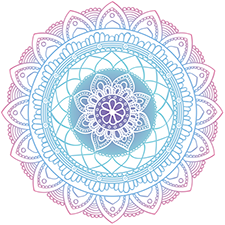Types of Addiction
San Jose Counseling and Psychotherapy
 There are numerous types of addiction seen in addiction counseling. People who are concerned that either they or a loved one may have a problem with addiction typically want to understand the process of addiction.
There are numerous types of addiction seen in addiction counseling. People who are concerned that either they or a loved one may have a problem with addiction typically want to understand the process of addiction.
Unfortunately, it’s not always easy to tell the difference between addiction and normal behavior.
As far as types of addictions seen in addiction treatment, they range from drugs like alcohol and tobacco to behaviors like gambling and sex.
Some types of addiction are specified in the Diagnostic and Statistical Manual of Mental Disorders (DSM-5) while others – like food addiction — are more controversial.
The types of addiction defined in the DSM-5 are referred to as substance abuse and substance dependency.
Neither of these terms translates to addiction but refers to harmful use of substances. Addiction professionals define addiction as a process that is both psychological and behavioral.
Addictions are typically characterized by craving, compulsions, an inability to stop using the drug, and distinct lifestyle dysfunction due to drug use. This dysfunction can appear in a variety of formats, such as inability to keep a job, difficulty in personal relationships, and/or getting arrested.
Substance Abuse in Addiction Counseling
Substance use disorders in the DSM-5 include the list of addictions to the substances below:
- Alcohol
- Tobacco
- Opioids
- Cocaine
- Cannabis (marijuana)
- Amphetamines
- Hallucinogens
- Inhalants
- Phencyclidine
- Prescription drugs
- Other unspecified substances
Behavioral addictions do not involve the use of a substance. This type of addiction is sometimes accompanied by an impulse control disorder (as defined in the DSM-5). Behavioral addictions are controversial and some mental health professionals in addiction counseling don’t feel they meet the requirement of being an official addiction. However, people who suffer from these behavioral addiction know they are very real.
Impulse Control Disorders in Addiction Counseling
 The DSM-V lists disorders where impulses can’t be resisted which can be considered a type of addiction. Below is a list of the recognized impulse control disorders:
The DSM-V lists disorders where impulses can’t be resisted which can be considered a type of addiction. Below is a list of the recognized impulse control disorders:
- Intermittent explosive disorder, which are compulsive aggressive and assaultive acts
- Kleptomania, also known as compulsive stealing
- Pyromania, the compulsive act of setting fires
- Gambling
List of Behavioral Addictions
Research in addiction treatment has begun to explore the concept that one of the types of addictions is behavioral addiction. Below is a list of behaviors that have been noted to be addictive:
- Food
- Sex
- Pornography
- Internet
- Computer use
- Playing video games
- Working
- Exercising
- Cutting
- Shopping
- Television
- Foods
Compulsive behaviors such as gambling, shopping, eating, and computers are difficult to recover from because people can depend on them as severely as alcohol or drugs.
Some activities are so normal for some people that it’s hard to believe someone can become addicted to them. Unfortunately, the cycle of addiction takes over, making everyday life for the addict a constant struggle.
Addiction can occur in many different forms, each devastating in its own way. Any type of addiction can be severe enough that it requires professional help. Addiction treatment helps individuals overcome addiction and get their lives back on track.
Definitions in Addiction Treatment
Simply defined, an addiction means that a person compulsively seeks and uses alcohol, drugs, or a behavior despite the damaging and dangerous consequences.
Changes in the brain can occur because of any type of addiction, and these changes can be long-lasting or permanent. The sooner an addict gets help with addiction treatment, the more completely they can recover.
As an addictions counselor specializing in addiction treatment, I have over 30 years of experience helping people with all types of addiction. If you would like to learn more about how I can help and schedule an appointment, please call my office at (408) 264-3082.





